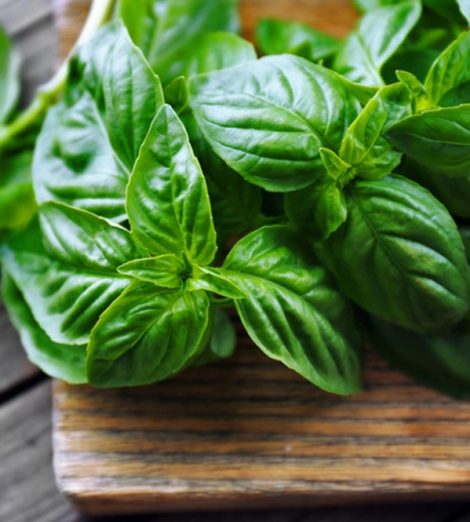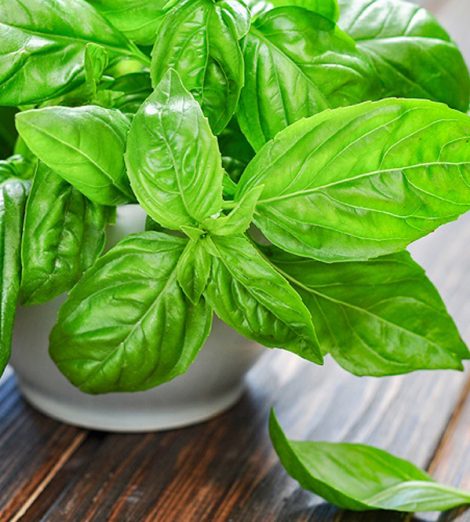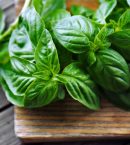Basil (Ocimum basilicum), also called great basil or Saint-Joseph’s-wort, is a culinary herb of the familyLamiaceae (mints). It is also called the “king of herbs” and the “royal herb”. The name “basil” comes from Greek βασιλικόν φυτόν (basilikón phutón), “royal/kingly plant”.
Basil is possibly native to India, and has been cultivated there for more than 5,000 years. It was thoroughly familiar to the Greek authors Theophrastus and Dioscorides. It is a tender plant, best known as a culinary herb prominently featured in Italian cuisine, and also plays a major role in Southeast Asian cuisines of Indonesia, Thailand, Malaysia, Vietnam, Cambodia, Laos, and Taiwan. Depending on the species and cultivar, the leaves may taste somewhat like anise, with a strong, pungent, often sweet smell.
There are many varieties of Ocimum basilicum, as well as several related species or species hybrids also called basil. The type used in Italian food is typically called sweet basil (or Genovese basil), as opposed to Thai basil (O. basilicum var. thyrsiflora), lemon basil (O. × citriodorum), and holy basil (Ocimum tenuiflorum), which are used in Asia. While most common varieties of basil are treated as annuals, some are perennial in warm, tropical climates, including holy basil and a cultivar known as “African blue basil”.














Đánh giá
Chưa có đánh giá nào.